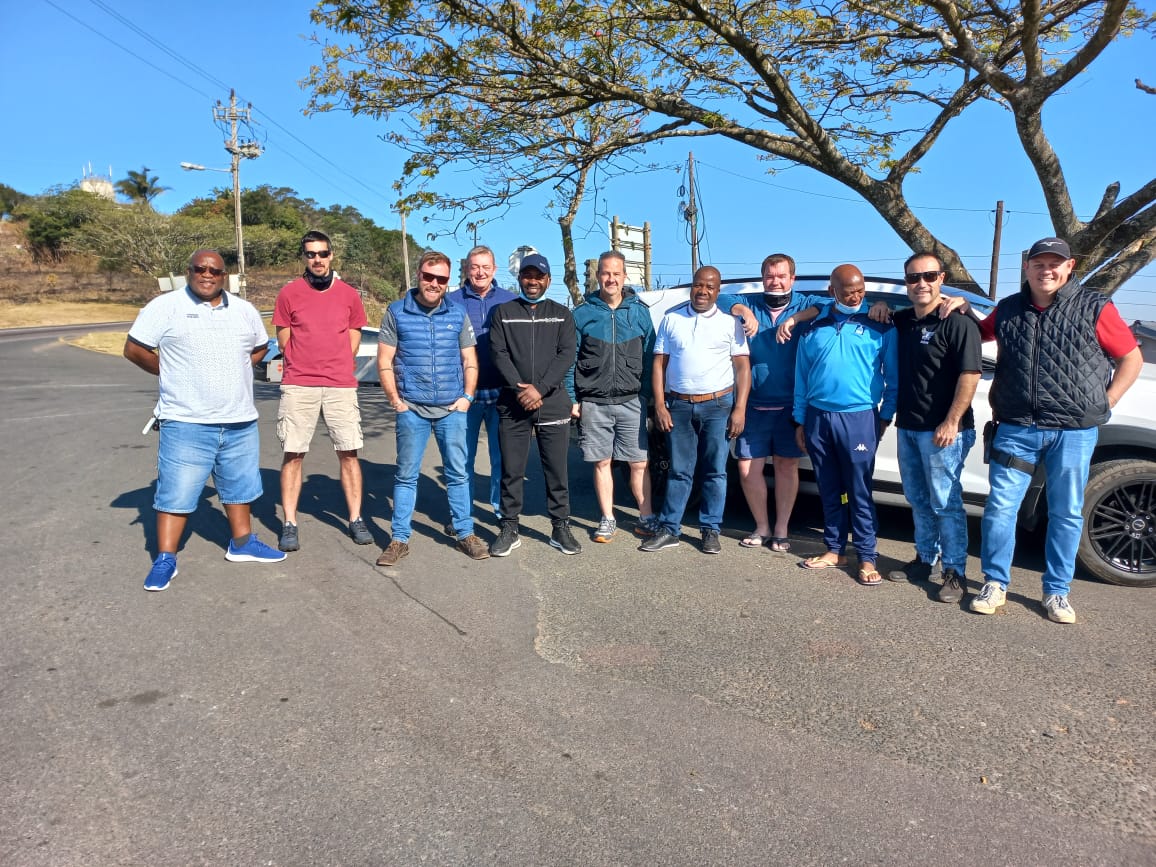From July through September 2022, Kellogg PhD Fellow Matthew Coetzee (sociology) traveled to KwaZulu-Natal and Gauteng, South Africa, on a Kellogg Institute Graduate Research Grant to conduct research for his project, “Resistance on the Fly: South Africa’s July 2021”. Upon his return, he sent the following summary of his work.

Durban West community in response to the July 2021 unrest.
The imprisonment of former South African president Jacob Zuma sparked widespread, and allegedly coordinated, movements against state infrastructure and businesses causing billions of dollars in damage to physical infrastructure, hundreds of deaths, and a significant challenge to state legitimacy. In a mere 8 days in July 2021, 354 people died during civil unrest in the provinces of KwaZulu-Natal and Gauteng as a result of violent confrontations between police, rioters, looters, adhoc community respondents and stampedes. An expert panel coordinated by President Cyril Ramaphosa found the state response to this unrest to be neither “timeous, appropriate [nor] sufficient” (Kana, 2022). The project I am working investigates the coordination of non-state, community actors that coordinated in opposition to Zuma supporters and opportunistic rioters and looters. This research project intends to simultaneously investigate two interrelated questions: How do non-state actors spontaneously coordinate, and navigate confrontation among various social groups, during disruptive events in which the state fails to maintain a monopoly on force? And does the participation in spontaneously coordinated social action increase solidarity across racial identities in Post-Apartheid South Africa?
Thanks to the substantial funding from the Kellogg Institute, I spent this past June, July, and part of August in Durban South Africa, my hometown, conducting research on the July 2021 unrest. I was able to complete 68 in-depth interviews with 80 people from three core areas within the city that responded in various ways to the unrest. In addition to interview data, I collected field notes from my time spent in different parts of the city, and compiled a database of digital materials – namely, photographs and videos that people had sent and kept covering the unrest and their responses to them. The visual database includes 800+ images and videos from the people I interviewed, and I intend to analyze these as part of the overall project. In addition, I was also able to access some archived Whatsapp community group chats that allow me a “real-time” perspective on how communities were mobilizing through social messaging groups during a disruptive event.
Whilst I am still in the early stages of my analysis and have a long way to go, the Kellogg Fellowship awarded to me for this summer research has been invaluable to my data collection and my development as a scholar focusing on cultural sociology, development, and democracy in post-Apartheid South Africa. This award has been especially valuable because it helped me after my first year in the PhD program – allowing me an opportunity to collect data early on, and closer to the time of the unrest without this funding I would have had to delay my project, or perhaps abandon it altogether. I have no doubt that this funding and professional support will continue to help me develop as an academic and researcher, and I want to sincerely express my deepest gratitude to the institute for their continued support in my endeavors.





